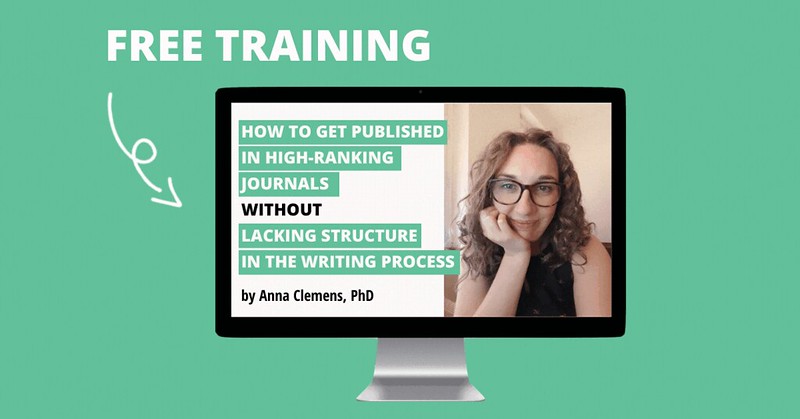Are you wasting time when writing papers or proposals? Feel guilty when you are not writing? Or do you catch yourself writing in the last minute before a deadline? Here, I’ll show you 12 strategies that you can implement to stay productive when writing your paper or grant proposal. There’s also a scientific writing toolkit up for grabs to get you started immediately.
This is the first of my two-part productivity mini-series. Click here to read part 2.
Frankly, working as a scientist can be overwhelming. There aren’t many jobs in the world that require you to excel at so many different skills at the same time with so much pressure. For some, there’s lab work to do, data analysis, student meetings, teaching, running a lab, admin, sitting in committees, faculty meetings, attending conferences… And somehow you should publish papers and apply for grants. Scientific writing requires time, focus and creativity. So, when exactly will you be getting it done?
Don’t worry, I’ve got your back. I’ll show you six ways to stay productive that I use myself. When I’m not helping my clients with their papers and proposals or writing this blog, I write articles for popular science magazines. This means my days are usually fully packed, and I have to get a lot of writing done. I love productivity routines because I hate the idea of wasting time.
Writing productively means to get your paper or proposal done in less time and feel good about it. I’ve tried and tested a number of different techniques. Today I’m showing you six of my favourite writing productivity strategies.
So, here we go:
1. Sleep plenty
I know that you know it. And I know it’s hard to find more time to sleep. But sleeping more has helped me to have more time (really!) because being rested has increased my productivity. When you attempt to write when you are tired, it’ll likely take you longer. You can get so much more done when you are feeling fresh and focused.
When you try to sleep more, take baby steps. Set yourself an alarm ten minutes earlier than you’d usually go to bed. Try to be in bed by that time for a few days and if you succeed, try to make it twenty minutes, then perhaps an hour. It’ll take time to change a habit like your bedtime and it won’t go smoothly, but you can make it work!

2. Know your goals
Whatever writing task you devote your time to: Make a cost-benefit analysis. Determine whether the particular writing project will bring you closer to your goals. Do you know your goal? Is it perhaps a PostDoc position in that prestigious lab or getting the promotion to become an associate professor?
Once you are clear about your immediate and ultimate goals, you should ask yourself with every writing project that is crossing your path whether it is bringing you closer to these goals. Committing to a writing task means that you are saying no to another one. Also, if you don’t fully stand behind a writing project, you’ll likely be less motivated, and thus work less productively. Therefore, don’t say yes to everything but be mindful of how you spend your time.
3. Have a writing plan
Having a plan makes you more productive. I often hear from scientists that they just can’t plan things because of – well, the nature of science. I agree that you will never be able to foresee your findings. It is also normal when your article ends up taking a different direction than you had initially planned. But – that doesn’t mean you can’t have a plan. You just need to modify it whenever something changes. A plan isn’t always an accurate prediction of when something will be finished. It is useful nevertheless because it keeps you on track.
A couple of tips for creating a writing plan: If other people are involved in your writing process, be sure to include them in the plan and agree on deadlines. If at a certain point, you need feedback from someone, make sure in advance that they will be available and up for it then.
In order to plan your writing, you need to know how long the various bits will take you. Don’t be optimistic here. If you struggle to estimate how long a project or task takes you, start tracking the time you spend on tasks. For this, you can use the worksheet in my writing productivity toolkit that you can download here:
4. Give yourself deadlines
Most of us write better when there is a deadline to work towards. This is why deadlines should be part of your writing plan. The final deadline for submission is not enough to ensure you are productive during the whole writing process. It’s better to include several deadlines for specific goals in your writing plan.
Key here is to make yourself respect the deadlines that you set yourself. We usually take an external deadline seriously but we tend to put things off if we are the only ones involved. Therefore, I recommend communicating your deadline to somebody who will hold you accountable. This could be a peer in your research group or department, a collaborator in your writing project or a friend. Perhaps you could find an accountability partner who you could hold accountable for their tasks in return? I can help you with this too. Join the Researchers’ Writing Academy and learn how to establish some deadlines within your writing project for you that I and our community of other researchers will hold you accountable for!
5. Find your ideal writing time
How many times have you read that you need to get up at 4 am every day and write for two hours in order to get your writing done? This approach does seem to work for some people. If you aren’t a morning person, however, – I definitely ain’t – please don’t pressure yourself into this. For most scientists, writing every day won’t be necessary either.
Instead, I want you to do a little experiment. Over the course of, let’s say, two weeks try writing at different times of the day. Then assess at what time you felt most focused and efficient. That’s your ideal writing time. I made a little worksheet for you that’ll make it easy to track and rate the different hours in the day using a focus score. Download the whole toolkit here:

6. Put tasks on your to-do list, not a project
This is where many people get frustrated: They put “Write paper” or “Write grant proposal” on their daily to-do-lists. The problem with this is that you will likely get frustrated because you can’t tick it off in the day. I learned this from the amazing Dr. Cathy Mazak who is a writing coach for academic women. Go check her out if you haven’t yet.
When you prepare your to-do list for the day, put tasks on your to-do list that you will be able to finish that day. For example, put “write a rough draft of the discussion section”, “cross check all references” or “proof-read results section” on your list. The more specific you can be – the better.
There you have it. These are the first six strategies I have for you to help you write productively. Can you start to implement one of these today?
I recommend playing around with the various bits of advice and tools before you read the second part of this writing productivity mini-series. Ultimately, you have to see what works best for you.






